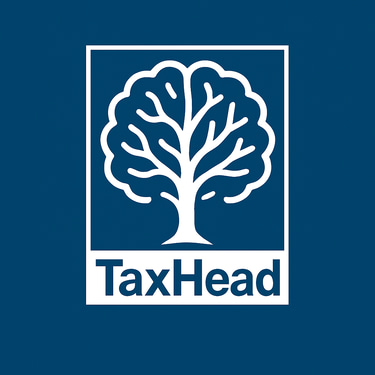Section 194R: TDS on Benefits and Perquisites
Is it necessary to check taxability in the hands of recipient before deducting TDS under Section 194R?
TaxHead
8/17/20254 min read
Is it necessary to check taxability in the hands of recipient before deducting TDS under Section 194R?
Provisions of the Act, and analysis:
The Finance Act, 2022 had inserted a new section 194R to the Income-tax Act, 1962 providing for deduction of tax at source (TDS) on benefit or perquisite in the course of business or profession.
The provision mandates any person who is responsible to provide any benefit or perquisite to a resident, whether convertible in cash or kind, that arises in the course of the recipient’s business or profession, to withhold taxes at the rate of 10% on the aggregate value of such benefit or perquisite.
As per the provisions, the following conditions should be satisfied to trigger the withholding tax liability under section 194R of the Act:
i. A person provides any benefit or perquisite to a resident in India;
ii. Such benefit may be provided in cash or in kind or partly in cash and partly in kind;
iii. The benefit or perquisite should arise from business or exercise of a profession.
Further, section 194R of the Act would apply only in instances where the value or aggregate of value of benefit or perquisite provided/ to be provided to the resident during the financial year exceeds Rs. 20,000.
However, the provisions are not applicable if the payer is an Individual or Hindu Undivided Family (‘HUF’) whose total sales/ gross receipts/ gross turnover from business or profession do not exceed 1 crore or 50 Lakhs respectively, during the financial year immediately preceding the year in which the benefit or perquisite is provided.
Section 28 – Income chargeable under the head "Profits and gains of business or profession":
It is pertinent to note that, value of such benefit or perquisite arising from business or the exercise of a profession, whether received in cash or kind, shall be taxable in the hands of the recipient under clause (iv) of section 28 of the Act under the head “Profits and gains of business or profession".
Whether it is prerequisite for the person providing the benefit/perquisite to check if such benefit is taxable in the hands of recipient before deducting tax under section 194R?
As apparent from the above, one of the key conditions to determine whether benefits or perquisites provided to a resident attract withholding tax under Section 194R is that such benefits must arise from the business or the exercise of a profession of the recipient.
If the answer to the above condition is ‘NO’, then there is no liability on the payer to deduct tax at source (TDS) while providing such benefits to the payee.
Further, in the context of Section 28(iv), which contains similar wording, it is a pre-condition that the assessee must receive such benefits or perquisites in the course of business or profession for it to be taxable under that section.
Reliance can be placed on various judicial precedents[1], the benefits or perquisites received by the recipient should have direct and intimate nexus with the business or profession of the recipient to be covered under the ambit of section 28(iv) of the Act.
This principle of the above ruling can also be extended to the applicability of Section 194R, where the obligation to deduct tax at source arises only if the benefit or perquisite is provided in the context of the recipient’s business or profession.
Given the above, while the provisions of the Act mandate that the benefit or perquisite must arise in the course of business or profession of the recipient, there is no requirement under Section 194R for the payer to verify whether such benefit is actually taxable in the hands of the recipient.
Accordingly, the obligation to deduct tax at source under Section 194R arises once a benefit or perquisite is provided in connection with the business or profession, irrespective of its taxability under Section 28(iv) or any other provision in the hands of the recipient.
In this regard, the Central Board of Direct taxes (‘CBDT’) vide Circular No. 12 of 2022 dated 16 June 2022 has clarified that the section casts a responsibility on the deductor to deduct TDS at the rate of 10% on the value of benefits provided, without needing the payer to assess their taxability under Section 28(iv) or any other provision.
Further, The CBDT places reference on the Supreme Court’s ruling in the case of PILCOM v. CIT, West Bengal[2], which clarified that when a section does not require checking the taxability in the recipient’s hands, the deductor must comply with the section as written, without any deeper taxability analysis.
In contrast, it can be further highlighted that, section 195 of the Act expressly requires the deductor to determine whether the payment is “chargeable to tax under the provisions of the Act” at the “rates in force”. Hence, there is further requirement of checking if the amount is taxable under tax treaty and if yes, at what rate under section 195.
In absence of similar terms in section 194R, it can be squarely concluded that there is no requirement for deductor to verify whether the amount is taxable in the hands of the recipient.
Conclusion:
Section 194R of the Act, was introduced with the aim of addressing potential tax leakage arising from non-cash benefits and perquisites often not reported by recipients such as sponsored foreign trips, cars, free samples and expensive gifts. The general intent of the provision is to place the responsibility of tax compliance on the person providing such benefits, rather than depending on the recipient to voluntarily disclose them.
As a result, the provisions deliberately avoid requiring the provider to assess whether the benefit is taxable in the recipient’s hands, ensuring consistency in compliance.
______________________________________________________________________________________________________________________________________
[1] Additional Commissioner of Income-tax v. Bharat V. Patel [2018] 92 taxmann.com 386 (SC)
ACIT v. Shahrukh Khan [2017] 84 taxmann.com 209 (Mumbai - Trib.)
[2] [Civil Appeal No. 5749 of 2012]


